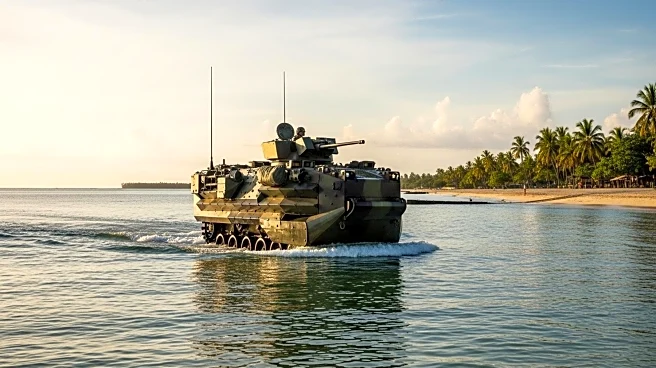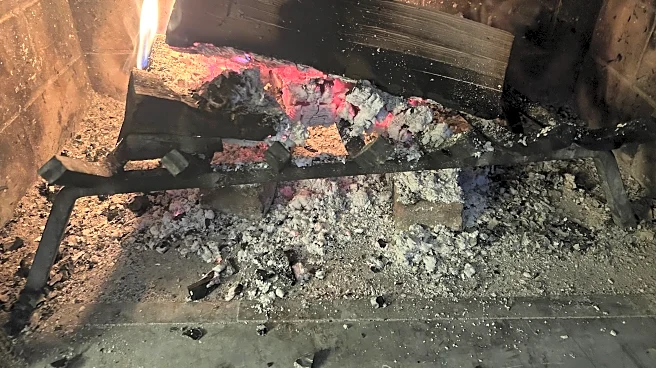What's Happening?
The U.S. Navy and Marines are conducting an amphibious landing training exercise in southern Puerto Rico as tensions with Venezuela escalate. This exercise involves the 22nd Marine Expeditionary Unit and is part of a larger deployment aimed at countering drug trafficking in the Caribbean. The Trump administration has labeled Venezuelan leader Nicolás Maduro a 'narco-terrorist' and has increased the reward for his arrest. The U.S. recently carried out a lethal strike on a drug vessel linked to a Venezuelan narco-terrorist organization, marking a significant escalation in efforts to combat drug trafficking.
Why It's Important?
The military exercises and increased U.S. presence in the Caribbean signal a heightened focus on drug interdiction and regional security. The deployment of U.S. forces, including amphibious ships and guided missile destroyers, underscores the seriousness of the Trump administration's approach to combating organized crime linked to Venezuela. This move could strain U.S.-Venezuela relations further and impact regional stability. The exercises also serve to enhance the readiness and capabilities of U.S. forces, while fostering stronger ties with local entities like the Puerto Rican National Guard.
What's Next?
The U.S. military's actions may lead to increased diplomatic tensions with Venezuela, as Maduro has characterized the buildup as a significant threat. The situation could escalate if further military actions are taken or if Venezuela responds aggressively. The U.S. may continue to bolster its presence in the region, while seeking international support for its anti-drug trafficking initiatives. The outcome of these exercises and the broader military strategy will likely influence future U.S. policy in Latin America.









